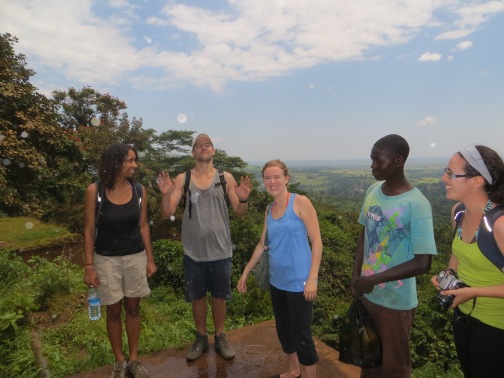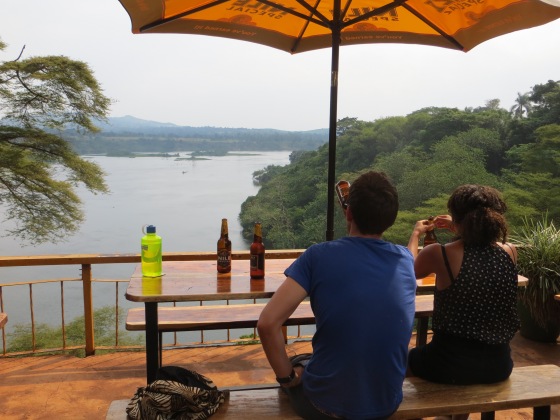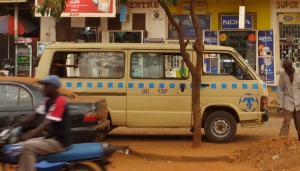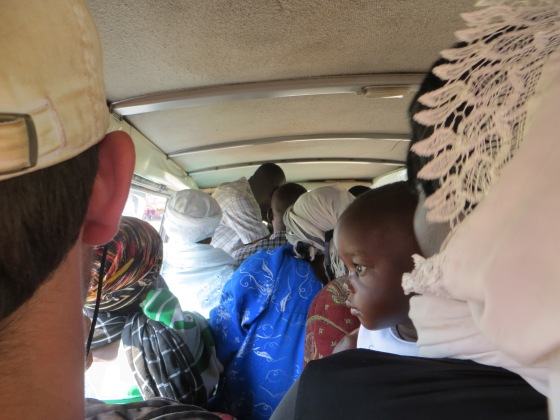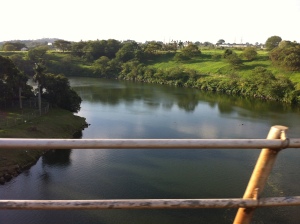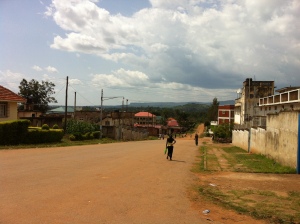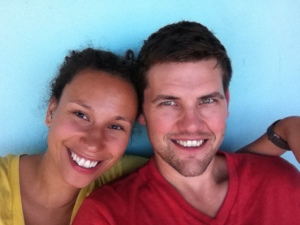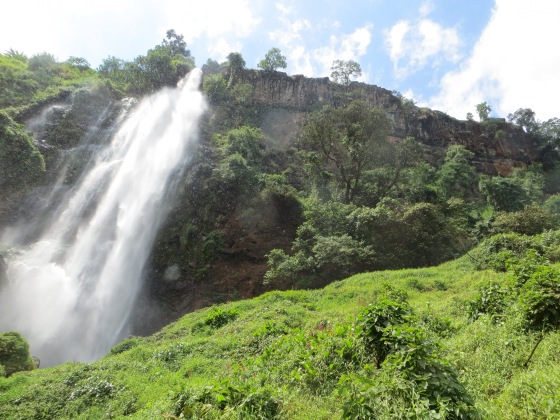 The drip, drip, drip of the faucet is nothing but an annoyance. Either its bedtime and the perpetual splash is simply too much to take or its your inner-plumber calling you to make a go of it to end this audible nuisance. Lately, here in Uganda we have come to realize out daily interaction with water is something unique. We covet the filters, we seek out the beauty, we have found additional listings on water’s resume that come in handy all over Mbale. Quick admission this post was inspired partially by our trips to the Nile/local waterfalls and also by Al Gore offering up the fact that the world’s ice sheets are losing 300 metric tons of ice per year. Astonishing to think about the abundance of water despite its prevailing preciousness in so many places.
The drip, drip, drip of the faucet is nothing but an annoyance. Either its bedtime and the perpetual splash is simply too much to take or its your inner-plumber calling you to make a go of it to end this audible nuisance. Lately, here in Uganda we have come to realize out daily interaction with water is something unique. We covet the filters, we seek out the beauty, we have found additional listings on water’s resume that come in handy all over Mbale. Quick admission this post was inspired partially by our trips to the Nile/local waterfalls and also by Al Gore offering up the fact that the world’s ice sheets are losing 300 metric tons of ice per year. Astonishing to think about the abundance of water despite its prevailing preciousness in so many places.
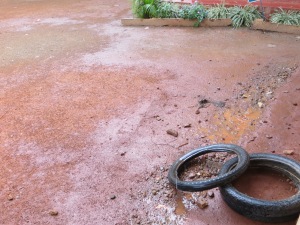 One more inspiration: Rain. Rain brings out identical feelings all over the globe. As human beings we run from small droplets of water as though they are about to attack us. We shower, swim, drink and pay surcharges for views of oceans of the stuff, but when it’s falling out of the sky pass the poncho please. Rainy season here creeps up somewhere in the neighborhood of 2-5 pm fairly regularly. Last week rain was up and out of bed early and caught me (and a few of the other fellows) during a motorcycle ride to Namatala. Failing to find a roof anywhere in sight I pressed on through the muddy crevasses and nascent river formations to get to our worksite. Head to toe soaked I arrived and everyone was very sorry for the new color of my gray shirt. I was half appreciative of their concern and half excited as it felt like one of the more satisfying showers of the past couple weeks.
One more inspiration: Rain. Rain brings out identical feelings all over the globe. As human beings we run from small droplets of water as though they are about to attack us. We shower, swim, drink and pay surcharges for views of oceans of the stuff, but when it’s falling out of the sky pass the poncho please. Rainy season here creeps up somewhere in the neighborhood of 2-5 pm fairly regularly. Last week rain was up and out of bed early and caught me (and a few of the other fellows) during a motorcycle ride to Namatala. Failing to find a roof anywhere in sight I pressed on through the muddy crevasses and nascent river formations to get to our worksite. Head to toe soaked I arrived and everyone was very sorry for the new color of my gray shirt. I was half appreciative of their concern and half excited as it felt like one of the more satisfying showers of the past couple weeks.
Each of the women we work with gets their water everyday from one of two local dispensaries. Each can of water (they go through about 3-5 per day depending on laundry loads) costs 200 Shillings and this represents a fairly large portion of their daily expenses. It makes the drip of the leaky faucet represent a little more to me now. It also makes me that much more concerned when someone brushes their teeth with the water running or wants to give the grass a healthy drink despite the fact it already stands 3 inches tall.
“The pearl of Africa” certainly lives up to its name. As Marjani, Kaliya, and I climbed up Sisiyi Falls (shout-out to our favorite Si Si back stateside) we were covered in greenery. The trail was no more than a sliver of dirt and rocks through palms, wild grasses, and coffee beans (which are green until they ripen to a mahogany red). 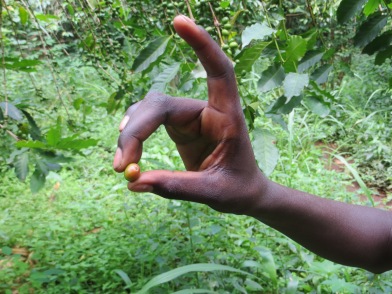 We stood underneath the falls to catch the mist cascading off the rocks and also to take a look at the piping set up to collect water. Our guide, Ronald, told us the collection from the falls supplies towns for miles in several directions. There was no electricity attached to the plumbing, just plain old gravity supplying the push. No question there is a symbiosis with the natural world that makes it possible for civilizations to survive generation after generation. Big thanks also has to go out to civil engineering folks for life’s basic necessities being so widely available back west.
We stood underneath the falls to catch the mist cascading off the rocks and also to take a look at the piping set up to collect water. Our guide, Ronald, told us the collection from the falls supplies towns for miles in several directions. There was no electricity attached to the plumbing, just plain old gravity supplying the push. No question there is a symbiosis with the natural world that makes it possible for civilizations to survive generation after generation. Big thanks also has to go out to civil engineering folks for life’s basic necessities being so widely available back west.
Marjani talked a little about our weekend getaway to Jinja last post, but talking about the Nile never gets old. The Nile is majestic. It’s massive, lush, full of energy, and it feels like it can pick you up toss you around and put you back wherever it pleases. The fact that we were sitting right at the beginning of it and could watch the start of that flow was awesome. Truthfully it’s hard to figure out how all that water can start flowing without a connection to the ocean from the other end. The Nile flows 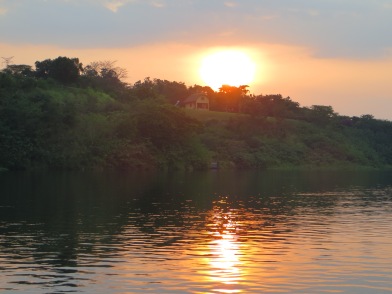 northbound right? So how does all that water replenish itself back into Lake Victoria quickly enough to keep up with the demand? It’s almost as confusing as traffic jams that spring up out of nowhere or trying to answer how the take a penny-leave a penny jar is never empty. It just is. It’s all happening (blog trademark) and that’s what matters.
northbound right? So how does all that water replenish itself back into Lake Victoria quickly enough to keep up with the demand? It’s almost as confusing as traffic jams that spring up out of nowhere or trying to answer how the take a penny-leave a penny jar is never empty. It just is. It’s all happening (blog trademark) and that’s what matters.
Lately Mbale has been working on some major civic upgrades. We’ve talked and chatted and explained all we can about the potholes and condition of the roads. I hesitate to even call them roads at this point. I believe they are simply convenient collections of cement/pavement that most people have decided to use for transport. So the construction crews came into town. The crew included three guys on bikes blocking the flow of traffic, a roller machine, a sign that says “Take another route” throwing all kindness to the wind, and a truck full of dirt. 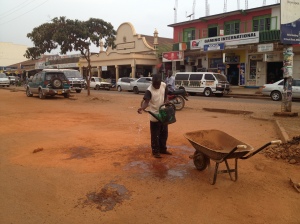 Dirt is dropped near the pothole and rolled to form a concave protuberance. Why concave? It needs its magical bonding agent to form the seal. That magical glue is nature’s most wonderful resource: water. From what I gather mud lasts longer and stems the daily dust storms along the roadsides. When I was a young lad I used to throw water on my hair as a styling product only to realize I was stuck back in the same conundrum hours later. Just as my hair found its way back to its original position there is no doubt the “roads” will find themselves with the same potholes not long from now.
Dirt is dropped near the pothole and rolled to form a concave protuberance. Why concave? It needs its magical bonding agent to form the seal. That magical glue is nature’s most wonderful resource: water. From what I gather mud lasts longer and stems the daily dust storms along the roadsides. When I was a young lad I used to throw water on my hair as a styling product only to realize I was stuck back in the same conundrum hours later. Just as my hair found its way back to its original position there is no doubt the “roads” will find themselves with the same potholes not long from now.
Water sustains us, brings us peace, and fixes all problems. Apparently it’s natures duct tape. We just had to travel to Africa to figure that out.
